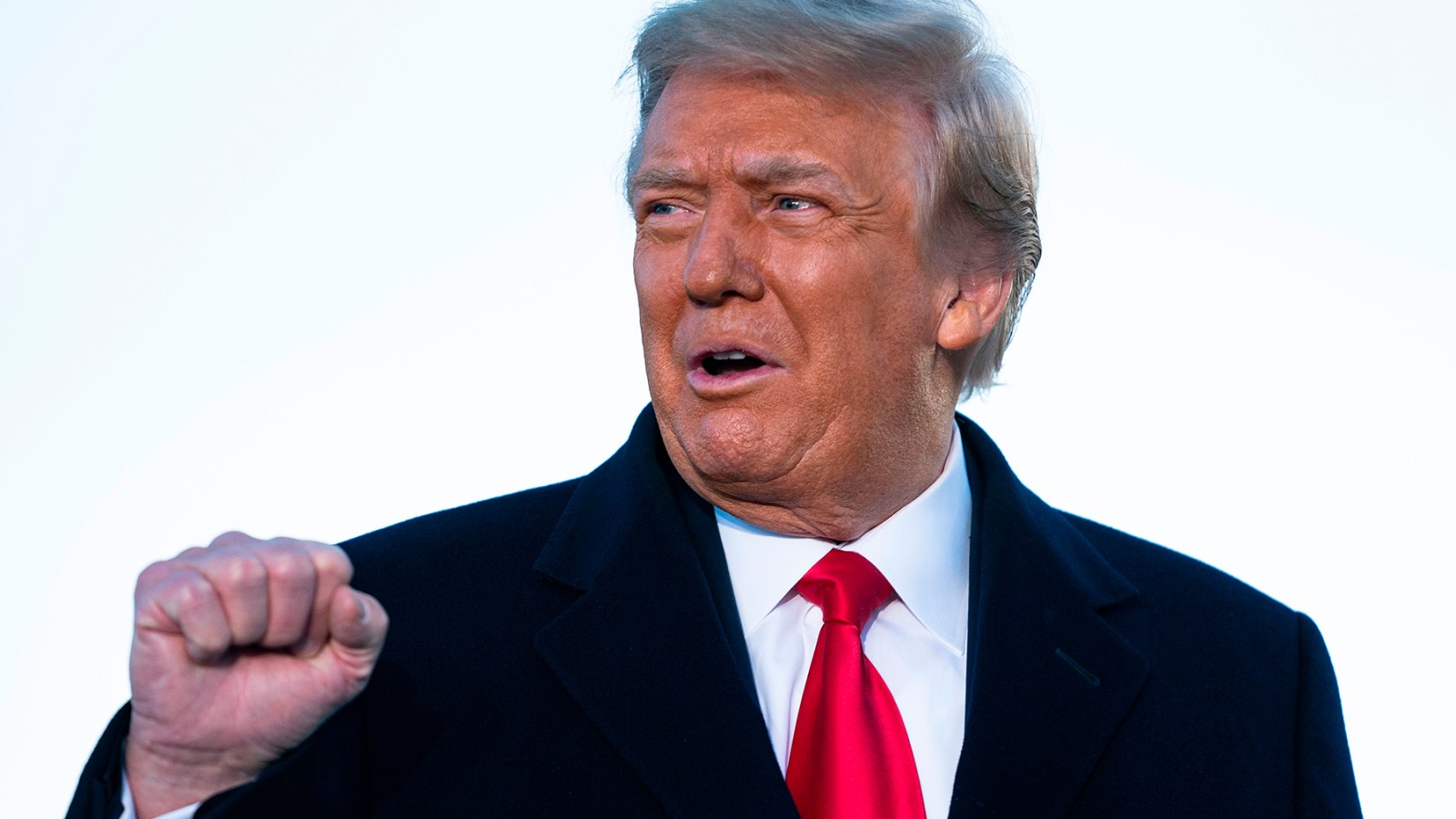Strengthening European Security: France's Case For Shared Nuclear Capabilities

Table of Contents
France's Rationale for Shared Nuclear Deterrence
France, a recognized nuclear power, has long advocated for a stronger European defense architecture. Its proposal for shared nuclear capabilities stems from a deep understanding of the evolving threat environment and a desire for a more robust and collectively secure Europe.
Protecting European Interests
France perceives a range of threats impacting European security. These include:
- Rising global instability: The proliferation of weapons of mass destruction and the increasing frequency of regional conflicts pose significant risks.
- Regional conflicts: Instability in the Middle East, Africa, and Eastern Europe directly impacts European security interests.
- Potential threats from revisionist powers: The actions of certain states challenge the existing European security order.
- Limitations of conventional defense: Relying solely on conventional forces may prove insufficient against certain threats.
This necessitates a reassessment of European strategic autonomy – the ability to act independently and decisively in the face of emerging challenges. Shared nuclear deterrence is positioned as a key component of this autonomy, bolstering Europe's ability to protect its vital interests.
Burden-Sharing and Cost Efficiency
Maintaining a credible nuclear arsenal is exceptionally expensive. Sharing the responsibility and the associated costs among European partners offers significant advantages:
- High cost of maintaining a nuclear arsenal: The financial burden on any single nation is substantial.
- Benefits of pooling resources: Shared funding can reduce the individual financial strain.
- Improved strategic planning and coordination: Joint efforts lead to more efficient resource allocation and a more cohesive strategic response.
The Potential Benefits of Shared Nuclear Capabilities
The benefits of a shared European nuclear deterrent extend beyond cost efficiency, contributing to enhanced security and strategic influence.
Enhanced Deterrence
A wider sharing of nuclear capabilities would significantly bolster deterrence against potential adversaries:
- Increased credibility of deterrence: A collective nuclear capability presents a far more formidable deterrent than individual national arsenals.
- Reduced risk of escalation: A carefully managed shared system could lower the risk of inadvertent escalation.
- Improved response capabilities: A wider network of capabilities enhances flexibility and resilience.
Strengthened Transatlantic Relations
This initiative could foster stronger ties between Europe and the United States:
- Improved NATO cohesion: Shared nuclear responsibility strengthens the alliance's collective security posture.
- Shared commitment to security: It signals a unified European front on security matters.
- Reduction of reliance on US nuclear umbrella: Europe would gain greater strategic independence.
Promoting European Strategic Autonomy
Shared nuclear capabilities are integral to a more independent and unified European security policy:
- Reduced dependence on external actors: Europe gains greater control over its security destiny.
- Increased resilience: A more robust and diversified deterrent enhances overall resilience.
- Improved crisis management: A unified response mechanism improves the ability to handle crises effectively.
Challenges and Obstacles to Implementation
While the potential benefits are substantial, the implementation of shared nuclear capabilities faces significant hurdles.
Nuclear Proliferation Concerns
The risk of nuclear proliferation is a paramount concern:
- Strict control measures: Robust mechanisms are needed to prevent the unauthorized spread of nuclear weapons.
- International safeguards: International Atomic Energy Agency (IAEA) oversight is essential.
- Transparency and verification mechanisms: Openness and verifiable safeguards are crucial for building trust.
Political and Legal Hurdles
Reaching a consensus among European states presents a major challenge:
- Reaching consensus among member states: Unanimous agreement on such a sensitive issue is difficult to achieve.
- Treaty modifications: Existing treaties may need revision to accommodate shared nuclear responsibilities.
- National sovereignty concerns: Member states may be hesitant to relinquish aspects of national sovereignty.
Public Opinion and Societal Acceptance
Public support is vital for the success of any shared nuclear capability initiative:
- Transparency campaigns: Open communication about the plan and its benefits is crucial.
- Public education: Addressing public concerns and misconceptions is paramount.
- Addressing fears of accidents or misuse: Detailed safety protocols and stringent security measures must be in place.
Conclusion
Strengthening European security through shared nuclear capabilities offers a path towards a more robust and unified defense architecture. While France's proposal presents considerable potential benefits – enhanced deterrence, strengthened transatlantic ties, and increased European strategic autonomy – it also faces significant challenges concerning nuclear proliferation, political hurdles, and public acceptance. Careful consideration of these factors is crucial. The initiative demands thoughtful deliberation and a commitment to transparency and accountability. We urge further discussion and debate on this vital issue, advocating for careful consideration of France's proposal and emphasizing its potential to redefine European defense. Researching further into the implications of shared nuclear capabilities for European security is essential for informed decision-making.

Featured Posts
-
 Oilers Vs Kings Game 1 Nhl Playoffs Predictions And Betting Picks
May 10, 2025
Oilers Vs Kings Game 1 Nhl Playoffs Predictions And Betting Picks
May 10, 2025 -
 Solutions For Nyt Strands Saturday April 12th Game 405
May 10, 2025
Solutions For Nyt Strands Saturday April 12th Game 405
May 10, 2025 -
 Police Misconduct Probe Launched Following Nottingham Attacks
May 10, 2025
Police Misconduct Probe Launched Following Nottingham Attacks
May 10, 2025 -
 Hills Shutout Leads Golden Knights To 4 0 Victory Over Blue Jackets
May 10, 2025
Hills Shutout Leads Golden Knights To 4 0 Victory Over Blue Jackets
May 10, 2025 -
 Caravans And Conflict The Uk City Battling Ghetto Perceptions
May 10, 2025
Caravans And Conflict The Uk City Battling Ghetto Perceptions
May 10, 2025
